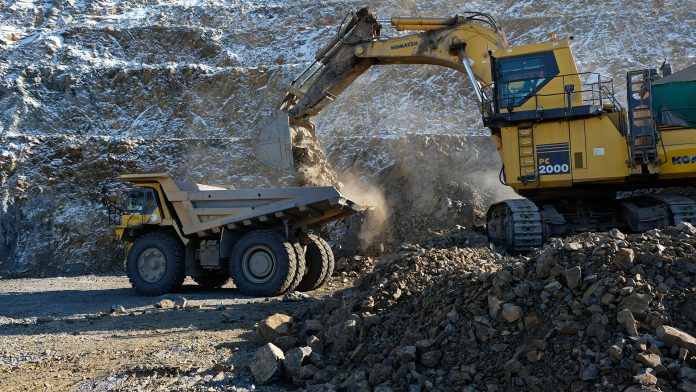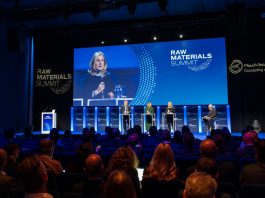Bernd Schäfer, CEO and Managing Director of EIT RawMaterials, explores the role of the organisation in Europe’s raw materials industry.
Critical raw materials are vital for a wide range of strategic sectors, including the net zero industry. As the world transitions to clean energy, the need to secure a sustainable supply of raw materials is increasing in importance.
Currently, Europe relies heavily on imports of raw materials. However, disturbances in supply chains caused by the COVID-19 pandemic and Russia’s invasion of Ukraine, for example, have highlighted the importance of having a domestic supply of materials.
Established in 2015, EIT RawMaterials is a key European actor set up to advance Europe’s transition to clean energy.
In May this year, the organisation held the fifth edition of the Raw Materials Summit attracting attendees from around the globe to discuss the latest breakthroughs within Europe’s raw materials sector.
Here, we spoke to Bernd Schäfer, CEO and Managing Director of EIT RawMaterials, about the role of the organisation and the Summit in Europe’s raw materials industry.
Can you outline the objectives and role of EIT RawMaterials in Europe’s raw materials industry?
EIT RawMaterials is the leading European raw materials network. It aims to advance Europe’s transition into a sustainable economy.
Our mission is to secure a sustainable raw materials supply for Europe, close materials loops, and design product solutions to ultimately develop raw materials into a major strength for Europe by driving innovation, education, and entrepreneurship.
Why is it important for the organisation to hold the Raw Materials Summit? What were the key takeaways from the 2023 event?
The Summit is a forum that brings the industry together to network, identify potential collaboration opportunities, and gain and share important insights impacting their part of the value chain or the sector as a whole.
The Summit comes at a time that the topic of raw materials is being given huge political priority. The Summit highlights the urgent need to accelerate and simplify processes to make Europe’s green transition and strategic independence a reality.
Addressing the skills gap and promoting social acceptance were frequently talked about during the Summit. How should EU leaders seek to address these large issues?
Europe has immense potential for innovation and scale-up, paving the way for a net-zero and regenerative economy. None of these – be it exploration, mining, recycling, or innovation – can be realised without substantial and prompt investment.
EU leaders have accepted the proposal by EIT RawMaterials for the proposed launch of a European Raw Materials Academy and this was included within the proposed Critical Raw Materials Act (CRMA). More details on this to come soon.
The European Critical Raw Materials Act was also a major topic of the Summit, with a poll suggesting that 54% of attendees were unsure about the Act. What benefits will the proposal bring about and what more must be done?

Europe’s raw materials industry welcomes the Critical Raw Materials Act and the vital role it will play in building the resilience of Europe’s global energy and raw materials supply chains. The action points in the CRMA will help to reform the industry, strengthen its technological advantages, and allow Europe to compete globally on a level playing field.
EIT RawMaterials fully supports the CRMA’s urgency to diversify supplies away from single-state economies and the reduced permitting times that will encourage investments in responsible extraction. Expanding European processing and recycling capacities and securing feedstock supply from within Europe are also important steps to creating investor confidence in the secondary sector.
With Europe facing an acute skills shortage in the rapidly expanding raw materials workforce and lacking proactive education and training opportunities to fill the gap, the education initiatives highlighted in the CRMA are also well received. The inclusion of a proposed Raw Materials Academy also marks an important step forward.
We believe that ultimate impact can only be created by addressing eight core areas:
- Setting of highly quantifiable targets, clearly going beyond the overall 2030 benchmarks for EU supply;
- Refining the list of Strategic Raw Materials, taking into account both primary products and by-products;
- Accelerating permitting support through national and regional outreach as well as a social license to operate;
- An EU-level financing and investment framework, including a European Raw Materials Fund and a dedicated annual European Exploration Fund;
- Strengthening and further improving European certification standards for primary and secondary raw materials;
- Research & Innovation with the aim to scale fast and bring new products to the market;
- Education to skill up people and talents via the launch of a European Raw Materials Academy; and finally
- Governance, with a Critical Raw Materials Board that also involves high-level industry representatives and financial experts.
What impact do you hope the European Raw Materials Alliance’s Action Plan will have on Europe’s raw material needs?
The Critical Raw Materials Act is a proposal to enhance Europe’s raw materials industry. Quantifiable targets and tangible outcomes must follow so it is not merely a symbolic gesture.
The ERMA action plan is a strong roadmap for the entire value chain, from exploration to recycling. The roadmap is supported by specific recommendations and actions in four primary strategic areas: materials in solar energy, battery materials, fuel cells, electrolysis, and alternative energy storage and conversion.
The recommendations and actions outlined in this action plan aim to create a more resilient, responsible, and sustainable energy storage and conversion sector, enabling the transition to a cleaner, greener, and more circular society.
Please note, this article will also appear in the fifteenth edition of our quarterly publication.









